What is Off-Page SEO and Why is it Important?
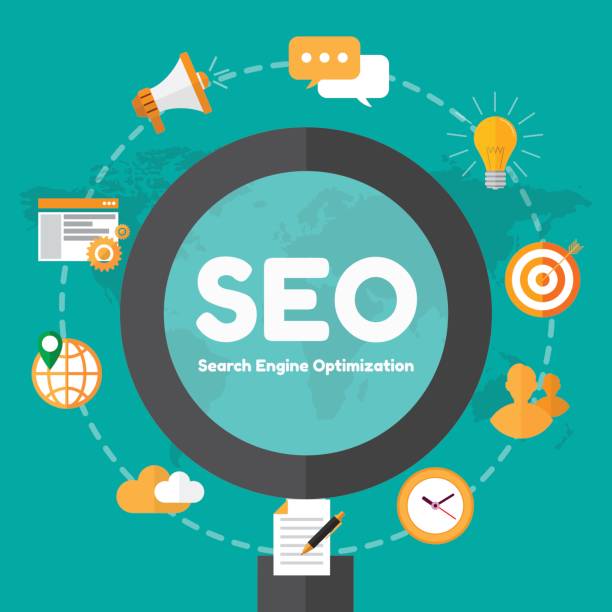
In today’s highly competitive world of digital marketing, Off-Page SEO is considered one of the most important pillars for achieving high rankings in search engine results.
Unlike On-Page SEO, which focuses on optimizing elements within your site, Off-Page SEO refers to activities performed outside your website to enhance its authority and standing in the eyes of Google and other search engines.
These activities primarily include building high-quality backlinks, brand mentions, and social signals.
The main goal of Off-Page SEO is not only to increase #website_traffic, but also to show search engines that your website is a credible, trustworthy, and relevant resource in its specialized field.
When other websites link to you, it’s essentially a vote of confidence in your content.
These votes, which are called Domain Authority, play a vital role in determining your position in search results.
A strong Off-Page SEO strategy can significantly improve your keyword rankings and ultimately lead to an increase in organic visitors and, consequently, potential customers.
This explanatory and foundational section is for a deeper understanding of future concepts regarding Off-Page SEO.
Understanding these basic principles is essential for anyone looking to improve their website’s performance in search engines.
Off-Page SEO activities, though seemingly complex, can yield amazing results with proper planning and precise execution.
One of the most important factors in Off-Page SEO is the quality of backlinks, not merely their quantity.
Are you concerned about your e-commerce site’s low conversion rate and not achieving your desired sales?
RasaWeb is your specialized solution for a successful e-commerce website.
✅ Significant increase in conversion rates and sales
✅ Professional and user-friendly design to satisfy customers
⚡ Ready for a transformation in online sales? Get a free consultation!
Key Pillars of Off-Page SEO: Link Building
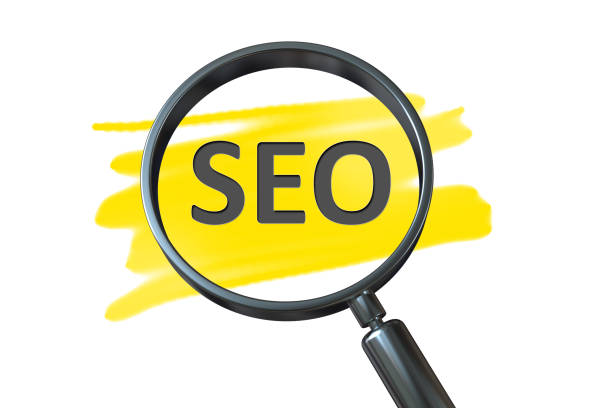
The backbone of any successful Off-Page SEO strategy is link building.
Backlinks, or links pointing from other websites to your site, are considered “votes of confidence.”
However, not all backlinks have equal value.
The quality of a backlink is determined by various factors such as the domain authority of the source site, topical relevance, link placement on the page, and link type (dofollow or nofollow).
Dofollow links pass more SEO value, while nofollow links are typically used to prevent spam or for promotional content and directly pass less authority, although they can be effective in increasing referral traffic and brand awareness.
Link building strategies should be pursued naturally and organically to prevent Google penalties.
Unnatural methods such as buying bulk links or using Private Blog Networks (PBNs), while potentially yielding short-term results, cause severe long-term damage to your site’s credibility.
This educational section helps you understand the importance of quality link building and provides the necessary guidance to start a successful Off-Page SEO campaign.
Understanding these basic concepts is essential for any SEO professional to adopt a comprehensive and sustainable approach to improving website rankings.
Efforts to attract links from high-authority websites relevant to your field are the most important step in this direction.
Advanced Techniques for Effective Link Building

To have a powerful Off-Page SEO, it is necessary to use diverse and advanced link building techniques that not only help increase the number of backlinks but also ensure their quality.
The most important of these techniques include: producing valuable and shareable content that naturally attracts links, Guest Posting on relevant and reputable websites, Broken Link Building (which involves finding broken links on other sites and suggesting your content as a replacement), and Digital PR to gain media coverage and links from news sources.
Additionally, participating in specialized forums, answering relevant questions on platforms like Quora or Reddit, and creating engaging, data-driven infographics that are naturally shared can also help attract high-quality links.
The important point in all these methods is focusing on quality and relevance.
Links coming from spammy or irrelevant websites are not only useless but can also harm your site’s credibility.
This specialized approach requires time, patience, and skill in identifying suitable link building opportunities.
For success in Off-Page SEO, your team must constantly seek creative methods to attract natural and powerful links.
Table 1: Types of Backlinks and Their Characteristics
| Backlink Type | Description | Impact on SEO | Challenges |
|---|---|---|---|
| Guest Post | Writing articles for other blogs and placing a link to your site | High (if a reputable site is chosen) | Need to find relevant sites and produce quality content |
| Broken Link | Finding 404 links on sites and proposing your content as a replacement | Medium to High (requires suitable replacement) | Time-consuming to find and contact site administrators |
| Media Coverage | Receiving links from news agencies and news websites | Very High (due to source credibility) | Requires newsworthy content or a prominent event, strong connections |
| Local Directories | Registering in directories related to local businesses | Medium (for local SEO) | Time-consuming and limited number of achievable links |
Social Signals and Brand Authority in Off-Page SEO

Alongside backlinks, Off-Page SEO includes other factors that, although not directly considered as ranking signals in Google’s ranking algorithms, have a significant indirect impact on your site’s authority and visibility.
Social signals, including likes, shares, comments, and the level of user engagement with your content on platforms like Facebook, Twitter, LinkedIn, and Instagram, can lead to increased brand awareness and, ultimately, attract more traffic and natural links.
Although Google has explicitly stated that it does not consider social signals as direct ranking factors, a strong social media presence implies more engaging and highly-visited content, which increases the likelihood of it being seen and linked to.
Furthermore, Brand Mentions, even without a direct link, indicate to Google that your brand is recognized and reputable online.
Google’s algorithms have become smarter and can understand the connection between a brand name and specific topics.
This guidance emphasizes that Off-Page SEO goes beyond just link building; building a strong brand and an active presence on social media indirectly contributes to your SEO authority and paves the way for attracting higher-quality links and more organic traffic.
Does your current website build the trust that potential customers should have in your business? If the answer is no, it’s time to have a professional and impactful corporate website with RasaWeb.
✅ Fully custom design tailored to your brand identity
✅ Increased lead generation and business credibility in the eyes of customers⚡ Contact us for a free consultation!
Essential Tools for Off-Page SEO Analysis and Monitoring

For the successful execution of any Off-Page SEO strategy, using appropriate tools for analysis, monitoring, and identifying opportunities is crucial.
These tools allow you to examine your backlink performance, monitor competitor activities, and discover new link building opportunities.
Among the most important of these tools are Ahrefs, SEMrush, and Moz Pro, each offering extensive capabilities in backlink profile analysis, competitor keyword identification, and domain authority checking.
Google Search Console is also a free and essential tool from Google that allows you to view your site’s backlinks and remove suspicious links via the Disavow tool.
These tools also provide deep analytical capabilities for examining anchor texts (Anchor Text), backlink growth velocity, and link sources.
Effective use of these tools helps you base your Off-Page SEO strategy on accurate data and avoid blind decisions.
For instance, using Ahrefs, you can analyze the backlink profiles of your main competitors and identify websites that have linked to them; then, you can contact these websites to create link building opportunities for your own site.
This data-driven approach is key to long-term success in optimizing Off-Page SEO.
Question-Provoking Content and Its Role in Attracting Natural Links

One of the most powerful methods for attracting natural and high-quality links in Off-Page SEO is to produce question-provoking and valuable content.
This type of content, unlike purely promotional content, is designed to pique the audience’s curiosity, answer their questions, or provide unique and engaging information that users and other websites are inclined to share and link to.
Question-provoking content can include original research, new statistical data, interactive infographics, comprehensive and in-depth guides (Skyscraper Content), case studies, or even humorous and viral content.
The goal is to create content that inherently has shareable value and compels others to link to it.
This approach means investing in content quality rather than quantity.
When your content is good and useful enough to answer audience questions or provide information not found elsewhere, it naturally becomes a reference source and will attract many links.
This strategy not only helps your Off-Page SEO but also enhances your brand’s credibility and positions you as a thought leader in your field.
Good content is the foundation of any successful SEO campaign, whether on-page or off-page.
Case Study and Analysis of Successful Off-Page SEO Campaigns
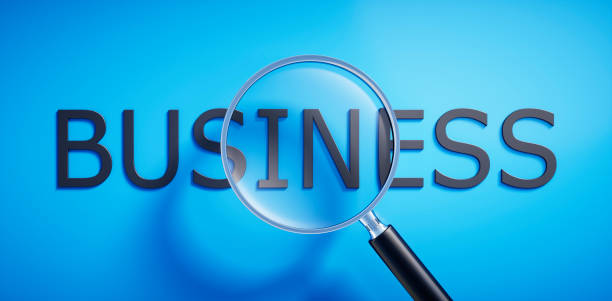
To better understand how to effectively implement Off-Page SEO, examining successful campaigns can be very educational and analytical.
Many leading brands and reputable websites have built powerful backlink profiles by focusing on content-driven and digital public relations strategies.
For example, a successful campaign might begin with the publication of a comprehensive research study on a specific industry.
This research, with fresh data and deep insights, quickly gains the attention of media outlets and specialized blogs, leading to the acquisition of dozens of high-quality links from news and authoritative sites.
Another example could be the release of an interactive infographic that explains a complex concept in a simple and visual language; this type of content, due to its high shareability, goes viral on social networks and generates numerous natural links.
News campaigns revolving around a specific event, an innovative product, or a controversial opinion can also rapidly attract valuable backlinks from major media.
The main lesson from these cases is that successful Off-Page SEO is the result of meticulous planning, exceptional content production, and a proactive approach to relationship building.
These campaigns demonstrate how creativity and expertise can overcome link building challenges and achieve significant ranking results.
Table 2: Comparison of White Hat and Black Hat Link Building Methods
| Feature | White Hat Link Building | Black Hat Link Building |
|---|---|---|
| Goal | Increasing natural authority and stable ranking | Rapid rank increase at any cost |
| Methods | Quality content production, guest posting, digital PR, broken link building | Link buying, PBNs, comment spam, excessive link exchange |
| Results Stability | Very high and long-term | Very low and high-risk (Google penalty risk) |
| Penalty Risk | Virtually zero | Very high |
| Time-consuming | Time-consuming | Fast (in the short-term) |
Common Challenges and Mistakes in Off-Page SEO and Ways to Avoid Them
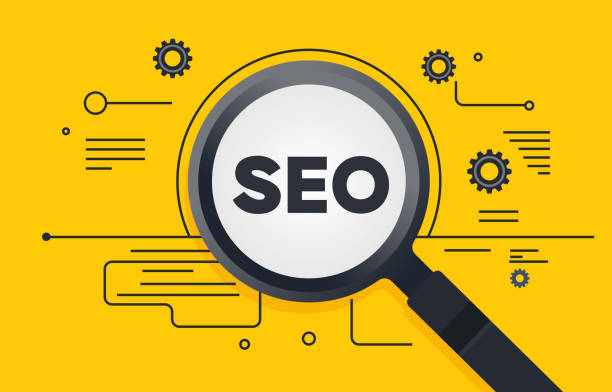
Like every aspect of SEO, Off-Page SEO also comes with common challenges and mistakes that can harm your site’s authority instead of improving it.
One of the biggest mistakes is focusing solely on link quantity over quality.
Some webmasters try to acquire as many links as possible, without considering the authority or relevance of the source site.
This approach can lead to Google penalties (such as the Penguin algorithm penalty).
Using spammy links, participating in excessive link exchange, or buying links from PBNs are all black hat methods that are strictly prohibited by Google.
Another mistake is the lack of diversity in anchor texts.
Overusing a specific keyword as anchor text can appear unnatural and send a negative signal to Google.
To avoid these challenges, you should always focus on building natural, diverse, and high-quality links.
Continuous monitoring of your backlink profile and using backlink monitoring tools to identify and disavow harmful links (Disavow Tool) are essential.
This guide explains how to implement a sustainable and effective Off-Page SEO strategy with a professional and ethical approach, avoiding black hat SEO pitfalls.
Do you have an e-commerce site, but your sales aren’t as expected? RasaWeb solves your problem forever by designing professional e-commerce websites!
✅ Significant increase in conversion rates and sales
✅ Unparalleled user experience for your customers
⚡ Click to get a free consultation with RasaWeb!
The Future of Off-Page SEO and Upcoming Trends
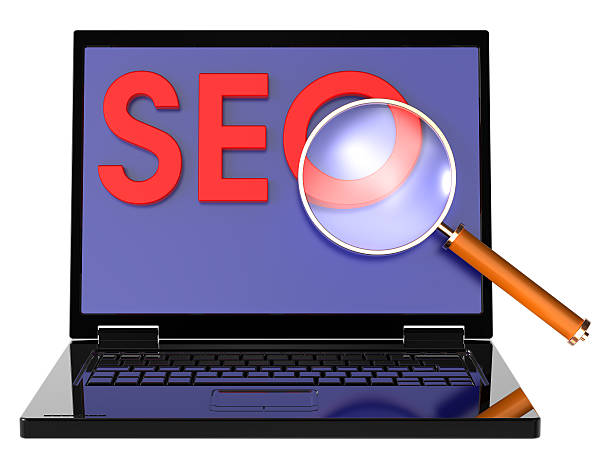
The world of SEO is constantly evolving, and Off-Page SEO is no exception.
Future trends indicate that the importance of Experience, Expertise, Authoritativeness, and Trustworthiness (E-E-A-T) will increase more than ever.
Google seeks to rank sources higher that not only have quality content but also demonstrate that they are written by reputable experts and are trustworthy.
This means that strong brand building and acquiring Brand Mentions from authoritative sources, even without a direct link, will play a more prominent role.
Artificial intelligence will also have a growing impact on how search engines evaluate and understand content, which could mean a greater emphasis on semantic content and inter-topic relationships.
User Experience (UX) will also indirectly influence Off-Page SEO; sites that offer a better user experience are likely to attract more visitors, consequently increasing the chance of attracting natural links.
In the future, success in Off-Page SEO will largely depend on a comprehensive and holistic approach that includes producing outstanding content, building strong relationships, and focusing on authority and expertise.
This engaging and exciting outlook indicates the increasing complexity and continuous dynamism of this field.
Conclusion and Integrated Strategy for Success in Off-Page SEO

At the conclusion of this comprehensive review, it is clear that Off-Page SEO is a vital and indispensable element of any successful SEO strategy.
This process extends beyond merely building backlinks and encompasses establishing your brand’s authority in the online space.
To achieve sustained success in Off-Page SEO, an integrated and harmonious approach is required, which includes producing high-quality and shareable content, building strong relationships with other industry players, and continuous monitoring of your backlink profile.
Every link, brand mention, or social signal pointing to your site demonstrates to search engines that you are a credible and trustworthy source.
Remember that quality always outweighs quantity; one high-quality link from a reputable website can benefit you far more than dozens of spammy, low-quality links.
By following the principles and techniques outlined in this article, you can effectively improve your site’s position in search results and attract sustainable, targeted organic traffic.
Off-Page SEO is a long-term investment whose results may not appear immediately, but its rewards over time will be substantial.
This final explanatory section provides a summary of all concepts presented and emphasizes the necessity of strategic integration.
Frequently Asked Questions
| Row | Question | Answer |
|---|---|---|
| 1 | What is Off-Page SEO? | Off-Page SEO refers to a set of actions performed outside your website to improve its ranking in search engines. These actions include backlink building, social media presence, branding, and more. |
| 2 | Why is Off-Page SEO highly important? | Off-Page SEO signals to search engines that your website is credible, popular, and trustworthy. High-quality backlinks from reputable sites are strong signals for better ranking and help increase your domain authority. |
| 3 | What are the most important components of Off-Page SEO? | The most important components of Off-Page SEO include: Link Building, Content Marketing, Social Media Marketing, Influencer Marketing, and Online Reputation Management. |
| 4 | What is a backlink and why is it important for Off-Page SEO? | A backlink (Backlink) is a link from another website pointing to your website. These links act as “votes of confidence” from Google’s perspective and indicate the credibility of your content. The more numerous and higher quality the backlinks, the better your site’s ranking will be. |
| 5 | What are the types of backlinks in terms of SEO impact? | The two main types of backlinks include DoFollow and NoFollow. DoFollow backlinks pass authority (Link Juice) and directly impact ranking. NoFollow links do not pass authority but can still generate traffic and help make the link profile appear natural. (Also UGC and Sponsored) |
| 6 | How can high-quality backlinks be created for your site? | To build high-quality backlinks, methods such as: producing excellent and shareable content, Guest Posting (Guest Posting) on relevant and reputable sites, Broken Link Building (Broken Link Building), Digital PR (Digital PR), and analyzing competitor backlinks can be used. |
| 7 | What are Toxic Backlinks and how do they affect a site? | Toxic or spammy backlinks are links that point to your site from low-quality, spammy, or irrelevant websites. These backlinks can harm your site’s ranking and even lead to penalties from Google’s algorithms. |
| 8 | What is the role of social media in Off-Page SEO? | Although social signals (likes, shares, etc.) are not direct ranking factors, they contribute to Off-Page SEO. They increase content visibility, drive direct traffic to the site, and ultimately boost the chance of acquiring natural backlinks and improving brand recognition. |
| 9 | What is the importance of diversity in a backlink profile? | Diversity in a backlink profile means that your links come from various sources (blogs, forums, news sites, directories), with diverse anchor texts, and with a combination of DoFollow and NoFollow links. This diversity signals to Google that your link building is natural and organic. |
| 10 | What are common mistakes in Off-Page SEO that should be avoided? | Common mistakes include: buying backlinks in high volume and from low-quality sources, excessive link building with target keywords (Over-optimization), neglecting quality over quantity in backlink building, lack of diversity in the link profile, and ignoring toxic backlinks and not disavowing them. |
And other services by RasaWeb Advertising Agency in the field of advertising
Smart Direct Marketing: A combination of creativity and technology for campaign management using real data.
Smart Customer Journey Mapping: Designed for businesses seeking campaign management through an SEO-driven content strategy.
Smart Link Building: A fast and efficient solution for customer acquisition with a focus on marketing automation.
Smart Customer Journey Mapping: A fast and efficient solution for campaign management with a focus on custom programming.
Smart Digital Advertising: An innovative service for increasing customer acquisition through the use of real data.
And over hundreds of other services in the field of internet advertising, advertising consulting, and organizational solutions
Internet Advertising | Advertising Strategy | Advertorial
Sources
Off-Page SEO Training, SEO Checklist, External Link Building Guide, Comprehensive Off-Page SEO Guide
? For your business to leap forward in the digital world, RasaWeb Afarin Digital Marketing Agency is your smart companion. From professional WordPress website design and SEO to content marketing strategies, we offer comprehensive solutions for your visibility and growth.
📍 Tehran, Mirdamad Street, next to Bank Markazi, Southern Kazeroon Alley, Ramin Alley, No. 6




